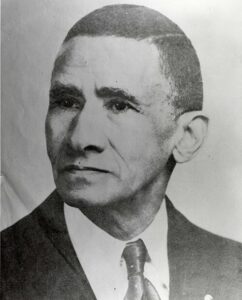Now that Donald J. Trump has been elected for a second time to the United States Executive Branch as President in 2024, that will come with tariffs on all U.S. imports. The question is how will these new Trump Era imposed tariffs affect businesses, specifically Black-owned businesses and are there solutions to surviving them?

Firstly, most Black-owned businesses aren’t the largest and they are mainly in the healthcare and social sectors, meaning that most are self sustaining such as beauty and barbershops, hair and makeup, wellness and childcare, therapy and the list goes on. Therefore, in that sense, Black-owned businesses have less to spend as they create their own products and can turn a profit within the Black community.
More cost cutting and financial issues can arise, however, when a Black owned business is larger and depends tremendously on imports such as construction companies (to which there are thousands of Black-owned in the nation) and pharmaceutical companies.
There may be unavoidable price hikes for business owners and consumers due to the cost of pharma imports which may also decrease the supply to consumers. Since the businesses will have to pay more for products, the consumers will inevitably eat the cost due to businesses needing to turn profits in order to keep the lights on, pay employees and all the costs of remaining open. This will make it difficult to remain competitive for all businesses, not just Black-owned.
There may be solutions to many of these issues that Black owned businesses may face, but the key to much of these issues is to start preparing now.
- Determine best cost cutting measures that will still allow for great output. For instance, a change of packaging, amount and even store hours/closing on a Sunday, may help balance the budget.
- Determine what you can do yourself, instead of hiring out. Sure, it may take time, but there is time to prepare and learn an alternative route prior to 2025.
- Utilize teenage volunteers who need the volunteer/apprenticeship hours in doing things such as stocking or advertising and in return, become a great reference for them in their future endeavors.
- Stock up on supplies early, at least a year in advance, especially if imports are out of China.
- Discover a new supplier that will negotiate better pricing for products, preferably finding someone inside the Black community.
All in all, Black business owners must decide now and secure plan B and C prior to Trump taking office officially in 2025 where he has promised to implement tariffs in his plans for the economy.





More Related Stories
More Black American Midwives Are Needed Across the USA After Systemic Attacks Reduced Their Numbers in the 1900s
Purchase Land & Make it an Asset, Not a Liability
Need Money To Start a Business? Apply For a Business Loan Using These Steps